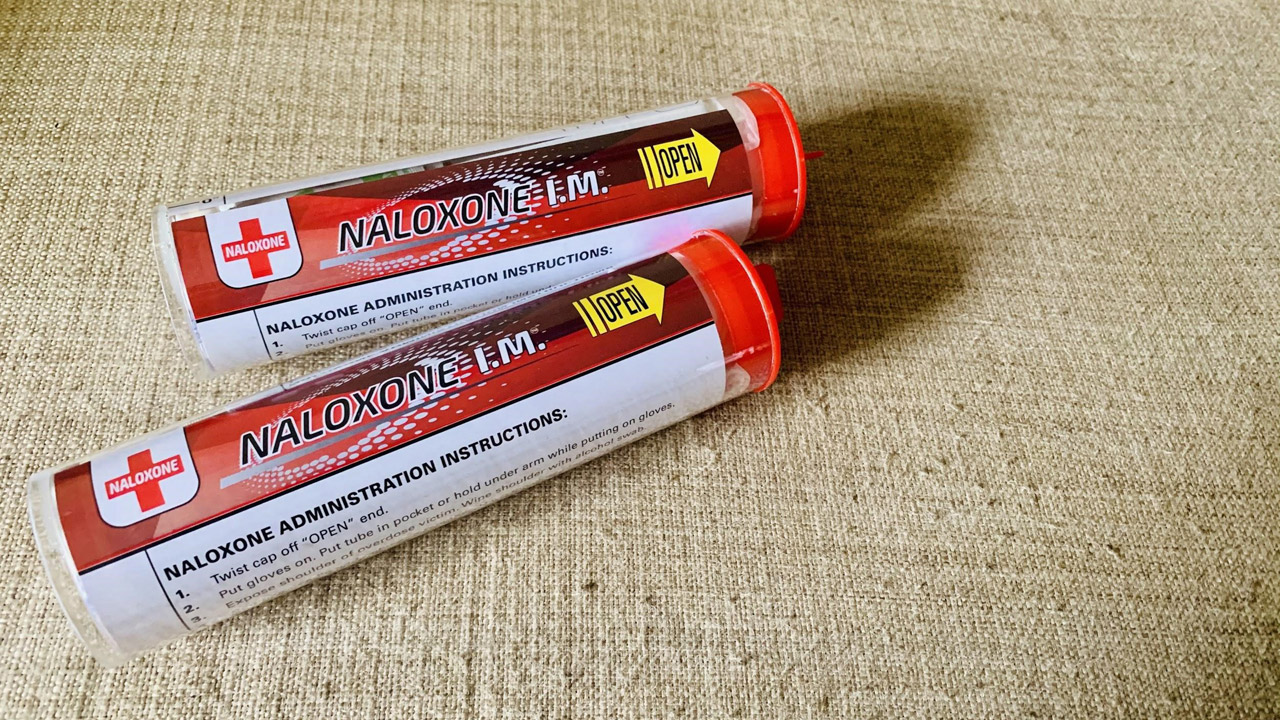Fanshawe special constables now carrying naloxone kits
 CREDIT: HANNAH THEODORE
CREDIT: HANNAH THEODORENaloxone is a readily available medication used to reverse the effects of an opioid overdose.
Fanshawe College is making moves to target the growing public health concern of opioid overdoses.
On Sept. 29, the College announced that its special constables, who provide security services for the College, will begin carrying naloxone kits.
Naloxone is a life-saving medication used to reverse the effects of an opioid overdose. All 11 of Fanshawe’s special constables will now be carrying the medication.
Shawn Rutkauskas, assistant manager of Campus Security Services, said the decision was made after discussions between student services, campus security and members of the College’s joint health and safety committee.
“The group wanted our community to have the same access to this life-saving tool available to community members in the London region,” said Rutkauskas.
The Middlesex-London Health Unit (MLHU) was also consulted on the initiative. According to the Health Unit, 5,289 naloxone kits were distributed in the Middlesex-London region in 2019, with 690 being administered that year.
Ed Pimentel, head of Fanshawe College’s security services team, said the decision was also made in response to the increase in opioid overdoses in the region.
“With the ongoing opioid overdoses, we just thought it was a good thing to do,” he said. “It was probably the most prudent thing to do.”
There has not been a need for a naloxone kit on campus before, but Pimentel said it’s worth it to be prepared.
“If we can save a life by having that medication with us, then that’s always a great thing.”
Although paramedics are often equipped with the overdosing-reversing kits, Rutkauskas said that Fanshawe’s special constables are often the first responders to a scene.
“Like our security officers, special constables respond to medical emergencies on campus and are often on the scene before paramedics arrive,” he said. “That time is often critical for a victim experiencing an overdose.”
Pimentel agreed that as Fanshawe’s campuses grow throughout the community, it’s important that campus security be prepared to handle any situation.
“We started to think about what else we can do in terms of enhancing our service,” said Pimentel. “... our physical campus environment is growing and there’s going to be times where someone who is being called out (the ambulance or the fire department), they may not know where to go exactly. And so, with our first responders, we’re usually there first, and, you know, with this kind of medication, time is always of the essence.”
The special constables received training on how to administer naloxone through the Canadian Police Knowledge Network, the same training tool that police services across Canada use.
“We undertook that training through online,” said Pimentel. “And it was a fairly quick and easy process.”
Staff and students can contact campus security services if they suspect someone on campus is experiencing symptoms of an opioid overdose. Signs of an opioid overdose include loss of consciousness, unresponsiveness, vomiting, changes in skin tone (bluish purple for lighter skinned people, grayish or ashen for darker skinned people), and troubled breathing.
Naloxone kits are also available at most off-campus pharmacies for students who want to equip themselves with the life-saving medication.
















